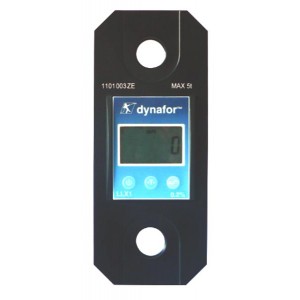
Being able to measure the weight of a load that is being applied to equipment is important in ensuring that operations are performed as safely as possible.
Guessing whether or not equipment can safely hold an estimated amount of weight is NOT safe and risks damage to the equipment, the operator, and the goods being loaded onto the equipment. With the right load cell, you can steer clear of these issues with ease.
By having the recommended load of weight for use with a particular form of equipment, you will be complying with The Provision and Use of Work Equipment Regulations 1998 (PUWER) and the Health and Safety at Work Act 1974.
In this guide, we explain what a load cell is and answer some of the questions commonly asked by our customers.
The term ‘load cell’ is used as a means to calculate measurements of load weight and forces applied on lifting applications. By converting the force into a measurable electrical output, the load cell can measure in different measuring units. This measurement value is then converted into a digital value that can be read and recorded by a user and compared to a lifting device to see if the device will hold the weight of the load.
The load cell type is determined by the direction of load applied, which operates in tension. This can be used to accurately determine whether or not a load is suitable for a variety of applications.
At Lifting Gear Direct, our tension load cells are typically used on cranes and hoisting equipment to calculate the weight of the load being lifted. These can all calculate various load measurements such as lbs, daN, kg, tonnes and kN (kilonewton) force.
Load cells are ideal for monitoring goods in and out of warehouses where loads can vary greatly in weight. Construction settings also commonly use load cells. Other uses include adding and weighting loads plus packaging prior to dispatch, rescue operations, weight inspections and tension controlled applications.
In order for the load cell to be accurately generated, the load cells must be calibrated regularly, with inspection and calibration at least once a year in order to ensure safe operation and accurate measurements.
While periodic calibration is required to conform to safety standards and regulations, the exact time scale typically varies and isn’t always specified. Ultimately, it should be an informed decision made by those responsible, and also depends on how critical the equipment is to day-to-day operations.
If you have not calibrated a Load Cell or weighed heavy-duty equipment before, we do off In-House and On-Site Load Testing of up to 30 tonnes in house. If you require calibration or training in handling, please contact us.
It’s important to make sure the load cell is checked so that operations can be performed as safely as possible. If you’re wondering how to read the load cell, you’ll need to purchase load and force calculation equipment which enable clear and easy reading of all measurements and calculations. All are battery-operated, although most are rechargeable and have LCD type screens so that you can see the calculations easily, besides the KG, lbs and kN some units have tare weight and peak load features.
This equipment will either have a digital display incorporated into the main unit, or they may have a remote control handheld display or can be linked with computer software, such as the Wirelink Plus Digital Dynamometer Load Cell Straightpoint.
At Lifting Gear Direct we stock and supply load and force calculation equipment from big-name brands at competitive prices, with our load cell line up reflecting the variety on offer across the rest of our lifting equipment range.
We endeavour to offer customers as many different product options as possible in our load cells line up, meaning that you can order products from brands you know and recognise, including Straightpoint, Red Rooster, Dynafor and Yale are amongst the companies whose load cells we supply.
Our experts can talk you through the range, explain particular products and also give you a quote to make things simple. Email us or call us on 01384 76961 to get the ball rolling.